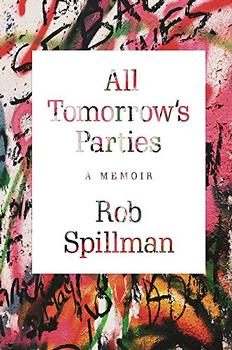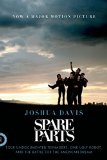Summary | Excerpt | Reviews | Beyond the book | Read-Alikes | Genres & Themes | Author Bio

How a Father's Love and 15,000 Books Beat Hip-hop Culture
by Thomas Chatterton WilliamsA pitch-perfect account of how hip-hop culture drew in the author and how his father drew him out again - with love, perseverance, and fifteen thousand books.
Into Williams's childhood home—a one-story ranch house—his father crammed more books than the local library could hold. "Pappy" used some of these volumes to run an academic prep service; the rest he used in his unending pursuit of wisdom. His son’s pursuits were quite different—"money, hoes, and clothes." The teenage Williams wore medusa-faced Versace sunglasses and a hefty gold medallion, he dumbed down and thugged up his speech, and did whatever else he could to fit into the intoxicating hip-hop culture that surrounded him. Like all his friends, he knew exactly where he was the day Biggie Smalls died; he could recite the lyrics to any Nas or Tupac song; and he kept his woman in line, with force if necessary.
But Pappy, who grew up in the segregated south and hid in closets so he could read Aesop and Plato, had a different destiny in mind for his son. For years, Williams managed to juggle two disparate lifestyles—"keeping it real" in his friends' eyes, and studying for the SATs under his father's strict tutelage. As college approached and the stakes of the thug lifestyle escalated, the revolving door between Williams' street life and home life threatened to spin out of control. Ultimately, Williams would have to decide between hip-hop and his future. Would he choose "street dreams" or a radically different dream—the one Martin Luther King spoke of, the one Pappy held out to him now?
Losing My Cool portrays the allure and the danger of hip-hop culture like no book has before. Even more remarkably, Williams evokes the subtle salvation that literature offers, and recounts with breathtaking clarity a burgeoning bond between father and son.
This is an important book. Williams chronicles his life in hip hop culture and his eventual break from that culture as he moves away from negative values (empty materialism, denigration of women) into a life of self examination. Along the way he becomes a philosophy major and is particularly gifted at explaining difficult concepts in language that make them seem quite simple. Although this is not an introduction to Heidegger or Hegel, you will walk away understanding the ideas they propound. The book is filled with extraordinary insight about the values hip hop culture promotes, what it is like to grow up middle class and black in America and how pernicious the hip hop values are for most young, black people. Williams is very insightful and is most compelling when he reflects on his life. One caveat: Williams seems somewhat uncomfortable and overly self-conscious when writing about himself and the people he knows and in the early part of the book, the writing is stilted. Persist! This is a book that is well worth reading (Froma F, Boulder, CO)..continued
Full Review
 (948 words)
(948 words)
(Reviewed by First Impressions Reviewers).
Hip hop, as a cultural movement, had its origins in the New York City Bronx in the 1970s, mostly among African Americans, with some Jamaican and Latin American influences.
Keith "Cowboy" Wiggins (of Grandmaster Flash and the Furious Five) is often credited with coining the term hip hop in 1978 while teasing a friend who had just joined the army by singing the words "hip/hop/hip/hop" in a way that mimicked the rhythmic cadence of marching soldiers. The name was originally meant as a sign of disrespect, but soon came to identify this new music and culture.
What started as an underground style has become commercialized in the USA and, to varying extents, across the world.
The four traditional pillars of hip hop:
...

If you liked Losing My Cool, try these:

by Rob Spillman
Published 2017
In his intimate, entertaining, and heartfelt memoir, Spillman narrates a colorful, music-filled coming-of-age portrait of an artist's life that is also a cultural exploration of a shifting Berlin.

by Joshua Davis
Published 2014
Four undocumented Mexican American students, two great teachers, one robot-building contest...and a major motion picture.